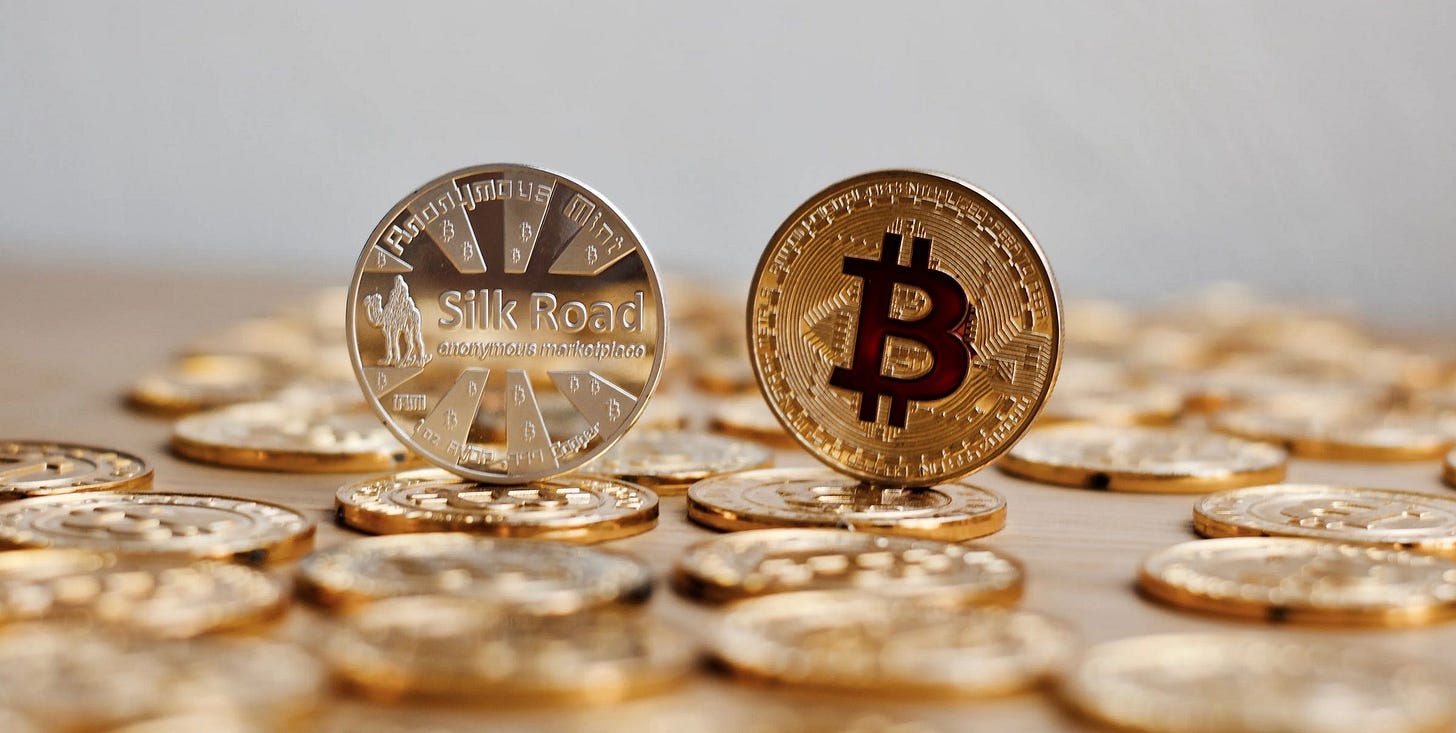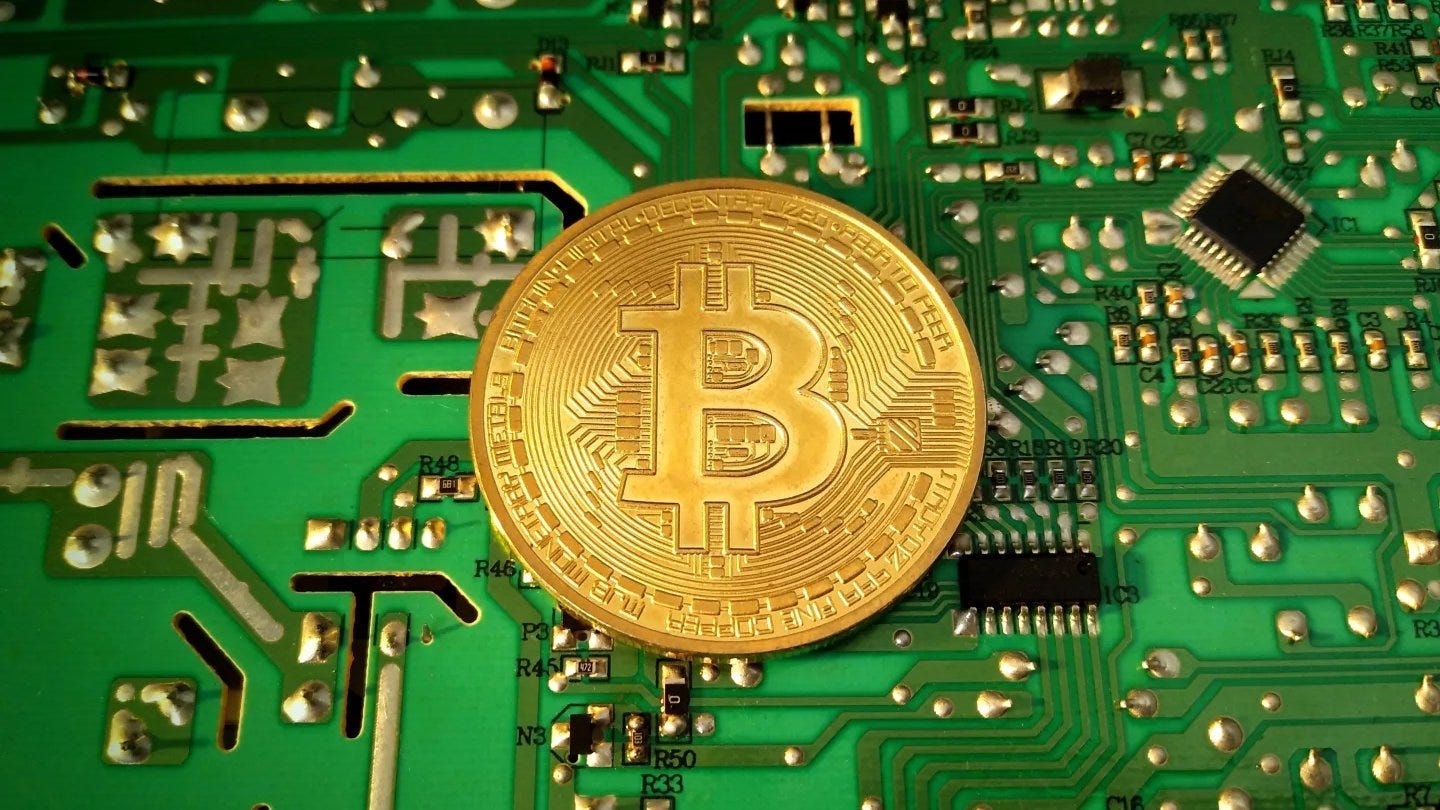President Trump Pardons Silk Road Founder Ross Ulbricht - Will Ross Get His Bitcoin Back Too?
Libertarians and Bitcoiners rejoice at the news

On January 21, just a day into his second term in the White House, President Trump carried out more of the immediate Executive Actions that had been promised to voters. As well as pardoning over 1500 of those who took part in the January 6 insurrection, Trump also saw fit to pardon Ross Ulbricht.
Ulbricht created, owned and operated the former Dark Web marketplace ‘The Silk Road’, operating under the pseudonym ‘Dread Pirate Roberts’.
Between 2011 and 2013, Ulbricht had applied his technical expertise as a software engineer, driven by his Libertarian-leanings, to offer an ultra-secret website that offered visitors the facility to buy drugs, weapons and a huge variety of other illicit goods and services, anonymously.
The site took payment in Bitcoin in order to protect the anonymity of buyers and sellers, and goods were shipped in the same way that we now shop online for everything.
If you want to learn the whole story, I can’t offer a strong-enough recommendation for the book ‘American Kingpin’ by Nick Bilton. I was actually a bit sad when I got to the end of the audio book as it was so good.
But I digress.
The conclusion of the story is that after many months of investigation by many Federal authorities, Ulbricht was finally apprehended and jailed. In the aftermath the Federal government discovered and seized a large volume of Bitcoin that had been received by the Silk Road. Ulbricht was jailed and given a hefty sentence, and since then his family and various other high-profile campaigners including Libertarians within the Bitcoin community, have campaigned for his release.
On January 21st 2025, POTUS 47 pardoned him, and characteristically made it about himself. He also spelt Ulbricht’s surname wrong in his post on Truth Social.
The fact remains that Ulbricht is free. But what happened to the Bitcoin? And why did people think he should be free in the first place?
The backstory
The Silk Road was an online black market and the first modern darknet market, operated as a hidden service on the Tor network allowing users to buy and sell products and services anonymously. Transactions were conducted using Bitcoin, which helped protect user identities. The site was notorious for its illegal drug marketplace, among other illicit and legal product listings.
Ulbricht’s motives for creating the site weren’t so much about untapped criminal instincts within him, but rather his Libertarian tendencies combining well with technical abilities as an engineer to create something for which there was clearly great demand.
Inadvertently Ulbricht was also largely to blame for the ‘Bitcoin is a tool for criminals’ FUD that the cryptocurrency still struggles with today.

Ulbricht’s Capture and Conviction
Ross Ulbricht was arrested in October 2013 and subsequently convicted in 2015 on multiple charges, including drug trafficking, computer hacking, and money laundering. He was sentenced to two life sentences plus 40 years without the possibility of parole. Prosecutors alleged that the Silk Road facilitated over $200 million in illegal drug sales and other illicit activities. Ulbricht was also accused of soliciting murders-for-hire, although no evidence was presented that any killings were carried out.
In November 2015 the BBC reported that a final batch of 22,000 Bitcoin had been seized from the Silk Road. That brought the total to around 175,000 Bitcoin that had been confiscated by the US Government following Ulbricht’s arrest to that point.
In November 2020, Federal investigations concluded when the IRS intercepted and confiscated a haul of 69,370 Bitcoinbelieved to have been stolen from the Silk Road by a hacker.
According to the FBI’s website, civil asset forfeiture laws make provision for the appropriate handling of the proceeds of crime, and of money and goods seized during investigations.
It’s reasonable to assume then, that this cache of Bitcoin remained in the custody of the U.S. Government. Well, some of it did.
Bitcoiners, Libertarians, and Republicans take up his cause
Bitcoin enthusiasts, libertarians, and some Republicans have been vocal in their support for Ulbricht’s release. They view his case as an example of government overreach and argue that his punishment was excessively harsh.
The Silk Road was seen as a pioneering use case for Bitcoin, demonstrating its potential for decentralized, anonymous transactions. Libertarians in particular, admired Ulbricht’s ideals and his vision of a free market unencumbered by government regulation. His supporters believe that he was unfairly targeted and that his actions did not warrant such severe punishment.
As someone not averse to ‘getting away with it’ Ulbricht probably appeals to Trump on that level alone.
Promises made, promises delivered
President Donald Trump pardoned Ross Ulbricht, fulfilling a promise he made during his campaign. Trump announced the pardon on his social media platform, Truth Social, stating that he had called Ulbricht’s mother to inform her of the decision. X (formerly Twitter) has since seen many Bitcoin-related accounts posting a picture of Ulbricht leaving jail.
Trump criticized the prosecutors involved in Ulbricht’s case, calling them “lunatics” and describing the life sentences as “ridiculous.” The pardon was seen as a gesture to appeal to libertarians and the Bitcoin community, who had supported Trump’s campaign.
While the initial response to the incoming president has been somewhat muted within the Bitcoin community given that none of his Executive Actions signed on day one were related to his campaign promises regarding cryptocurrency, the release of Ulbricht has at least scratched the surface.
Trump’s administration is expected to take a more lenient approach to cryptocurrency regulation compared to the previous administration, with measures discussed including the establishment of a Bitcoin strategic reserve for the U.S.
Which brings us to the Silk Road Bitcoin.
What about the BTC that was seized?
The title of this piece is of course, tongue-in-cheek. While Ulbricht’s sentence may have been excessive by many standards, he knew what he was doing when he set up an anonymous means of buying and selling drugs, weapons and access to criminal services.
The Bitcoin seized are the proceeds of this criminal activity and just as the FBI might stick a blue-light on the top of a drug dealer’s Ferrari that they’d seized, the BTC from Silk Road wallets remains property of the U.S. Government.
During Ulbricht’s trial, the government submitted 5 letters in evidence, written by families of unfortunate people who’d bought drugs from the Silk Road and died as a result of accidental overdoses and adverse reactions to the drugs. There’s a moral case for compensating the family of these victims even though it wouldn’t bring their loved-ones back. How that would work, or whether it happened is unclear.
In the case of the 175,000 Bitcoin seized to the end of 2015, the government auctioned them off to the highest bidder. It’s unclear what was actually paid for these Bitcoin but a BBC article suggests that the last batch of 22,000 were sold in lots of 2,000 coins to 11 separate bidders.
As for the 69,370 Bitcoin seized by the IRS in November 2020, I haven’t found anything that suggests these were sold or otherwise disposed of. Given that today they have a notional value of almost $7 billion at a price of $100k per coin, presumably these are still in the U.S. Government’s possession somewhere, and will form the basis of Trump’s strategic reserve?
All things considered, Trump may feel that between the years Ulbricht has served and the Bitcoin seized from the Silk Road, that justice has been done.
Do you agree?
Note: This article is for informational purposes only. It should not be considered Financial or Legal Advice. Consult a financial professional before making any major financial decisions.





